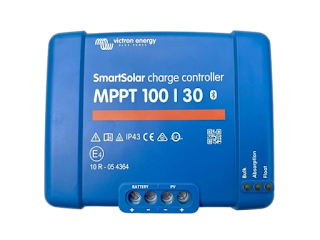A Comprehensive Analysis of Solar Energy in Nigeria: Opportunities, Challenges, and Economic Implications
Nigeria, strategically located within the sun-drenched tropics between latitudes 4°N and 14°N and longitudes 3°E and 15°E, is optimally positioned to harness its abundant solar energy potential. This potential is evidenced by an impressive average solar radiation of about 5.5 kWh/m²/day, culminating in approximately 1,885 kWh/m²/year, which significantly amplifies the country's capacity for solar energy generation. The peak solar hours vary from 4 to 6 hours daily depending on the season and location, highlighting the practical period for optimal photovoltaic energy production.
Clarification on Solar Hours:
It is crucial to differentiate between total daylight hours and peak solar hours, with the latter being critical for effective photovoltaic energy production, typically ranging from 4 to 6 hours across Nigeria. This period is essential for planning and implementing energy projects as it directly influences the efficiency of solar panel electricity generation.
Streamlining Solar Potential Discussion:
The immense solar energy potential in Nigeria is more pronounced in the northern regions, thanks to their proximity to the equator and drier climate, as opposed to the cloudier southern areas. This geographical diversity underscores the effectiveness of solar projects when tailored to the specific environmental characteristics of each region.
Addressing Power Sector Challenges
Evolving Power Supply and Demand:
The Nigerian power sector's instability and the widening gap between supply and demand due to rapid population growth and economic activities underscore the critical need for reliable alternative energy sources like solar power.
Infrastructure and Investment Realities:
Developing solar energy infrastructure in Nigeria still faces challenges such as access to financing and high initial costs of solar installations. It is essential to reflect the current state of investment and technical expertise in the sector accurately.
Economic Implications and Opportunities
Cost-Benefit Analysis and Government Role:
The initial installation cost of solar systems can be high but is offset by long-term savings on electricity bills and low operational costs. For instance, considering a household that consumes an average of 300 kWh/month, installing a 3 kWp solar system could substantially cover its energy needs. Assuming an installation cost of ₦1,500,000 and average monthly savings of ₦30,000 on electricity bills, the system could pay for itself in about 4 years. Over 25 years, the cumulative savings would be significant, showcasing solar power as a financially viable investment. The government and international bodies play a crucial role in facilitating solar adoption through policy frameworks and incentives aimed at reducing financial barriers and stimulating the solar energy sector's growth.
Challenges
The adoption and implementation of solar power in Nigeria, despite its significant potential, face several challenges that can impede progress. These challenges span technical, financial, and regulatory spheres, including:
1. High Initial Costs: The upfront cost of purchasing and installing solar panels, inverters, and other components of a solar power system can be prohibitively expensive for many individuals and businesses. This initial investment is often cited as a major barrier to the adoption of solar energy.
2. Access to Financing: Limited access to affordable financing options for solar projects is a significant challenge. While the cost of solar technologies has decreased over time, the lack of financing mechanisms such as loans, subsidies, and grants hampers the ability of potential users to switch to solar power.
3. Lack of Awareness and Technical Expertise: There is a general lack of awareness about the benefits and potential of solar energy among the Nigerian populace. Additionally, the country faces a shortage of skilled technicians and engineers needed for the installation, maintenance, and repair of solar power systems.
4. Policy and Regulatory Framework: Inconsistencies in government policies and a lack of comprehensive regulatory frameworks to support the growth of the solar energy sector can deter investment and slow down the adoption of solar technologies. The absence of incentives such as tax breaks, feed-in tariffs, and net metering policies further compounds this challenge.
5. Infrastructure and Grid Integration: The Nigerian national grid is characterized by instability and inefficiency, which can affect the integration of solar power. The lack of infrastructure to support distributed generation and the challenges associated with connecting solar systems to the grid can limit the effectiveness of solar power solutions.
6. Energy Storage and Reliability: The intermittent nature of solar power, due to its dependence on sunlight, necessitates reliable storage solutions to ensure a constant supply of electricity. However, the high cost and technical complexity of energy storage systems remain significant hurdles.
7. Market Structure and Competition: The solar market in Nigeria is still developing, with competition from conventional energy sources and imported fossil fuels. The lack of a level playing field, coupled with import duties and the availability of cheap, albeit environmentally harmful, alternatives, can discourage the adoption of solar energy.
8. Social and Cultural Factors: In some regions, social and cultural perceptions about renewable energy technologies can influence the acceptance and adoption of solar power. Misconceptions and lack of information can lead to resistance among potential users.
Addressing these challenges requires a concerted effort from the government, private sector, and international partners. Implementing supportive policies, increasing public awareness, investing in human capital development, and creating innovative financing models are essential steps toward overcoming these obstacles and harnessing Nigeria's solar energy potential.
Conclusion: Towards a Sustainable Solar-Powered Nigeria
Nigeria's journey towards a solar-powered future holds promise, underscored by its substantial solar resource and the strategic importance of renewable energy for national development. To maximize this potential, concerted efforts from the government, private sector, and international partners are needed to address infrastructure challenges, enhance investment flows, and implement supportive policies. Strategic investments informed by Nigeria's solar energy potential and the nuanced requirements of its diverse regions, along with robust policy support and public awareness initiatives, are essential for achieving an energy transformation that enhances Nigeria's economic landscape and improves the quality of life for its citizens through sustainable, reliable, and cost-effective solar power solutions.
.jpg)



Comments
Post a Comment